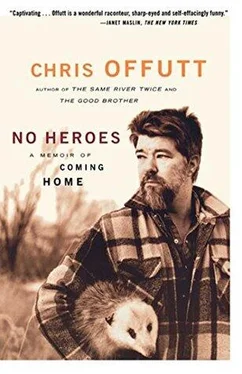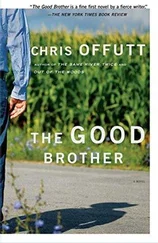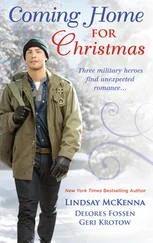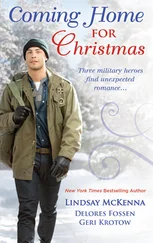As the conversation begins to wane, his voice takes on a tone of concern.
“I don’t want to ask, Sonny. But something is nagging at me a little.”
“It’s all right, Arthur. Ask me anything.”
“What bothers me is this. How will you link the two stories. The war and Kentucky. What joins them?”
“I don’t know, Arthur. I’m worried about that myself.”
“You figure it out, Sonny. I have faith. Maybe something subliminal.”
“The ending,” I say. “Maybe the ending will pull it all together.”
“All endings are the same, Sonny. You die. The scene in the Titanic movie was the closest I’ve ever seen to the camps — one against the other. The good people don’t survive. You have to push a little to get into the lifeboat. There was one scene of two old people watching it all, then they went to their bed and lay down and waited to die. At that point, I could not look. It was my attitude exactly. But I lived. I always lived. That was the problem. I lived.”
I hang up the phone, impressed by the prescience of his concern. At first I thought the notion of home would bind the narratives — my constant desire to return, his utter commitment to never go back. My original plan was for us to visit Poland together, but he refused. I suggested a trip to Israel, and again he refused. Traveling to the Holocaust Museum in Washington, D.C., was also dismissed.
I considered making a trip to Poland alone, visiting Kraków, finding cemeteries, standing in the very room where Arthur was born. This seemed as depressing a prospect as reading about the Inquisition and I quickly abandoned the plan. In fact, all my ideas seemed pathetic. I finally decided that the ending would be whatever happened during my life while writing the book.
The Library and Mrs. Jayne
Mrs. Jayne lived all her life in Morehead, and if she had not always been content, she’d made her peace long ago. Occasionally she’d tell a story about going to Lexington with her girlfriends, referring to the trip as “a bunch of country women on the loose.” Mrs. Jayne was my first-grade teacher.
She loved the boys and girls of Haldeman, and we loved her back in the fierce way of children who express elemental emotion with every cell in their bodies. Her house held photographs of people she’d taught, their spouses, their babies, their grandchildren. She was a widow with no kids of her own, and her former students served as family. Each year I sent Mrs. Jayne a Christmas card. I visited when I went home and several years ago I’d introduced her to Rita. All my grandparents were dead. I wanted Sam and James to know Mrs. Jayne.
I drove to her house, thinking of the car I owned in college, a red Maverick that leaked Bondo at the seams. To save money I parked in Mrs. Jayne’s driveway, which was a block from campus. She said she liked seeing the car and knowing one of her first graders had made it to college.
Now Mrs. Jayne was in her eighties. She never locked her door and was hard of hearing. To visit, you walked into her breezeway and began calling yoo-hoo to avoid startling her. Today she didn’t answer and I found her asleep in an easy chair. I gazed around the living room at all the photographs, including one of my sons propped on the mantel. When I was a kid her house was the most proper I’d ever been inside, containing stiff furniture that was uncomfortable to sit on. Later I understood that she lived among lovely antiques that she kept neat and clean, despite using them daily. Now I recognized that everything was a little messy — a pillow on the floor, a rumpled afghan, a water stain on an end table. I tiptoed out. The kids were disappointed and I told them we’d visit the Rowan County Public Library.
I was the first kid to step inside the library when it opened in 1967. The head librarian was Frankie Calvert, related by marriage to Mrs. Jayne. One woman taught me to read and the other placed books in my hands each week. I loved them as a child and my devotion had never faltered.
Due to the library’s limited holdings, you could only check out four books at a time per library card. Since I read at least one book a day, and more during school vacations and weekends, I circumvented the rules by getting library cards for all my siblings, two of whom were not yet in school, as well as a card in the name of the family dog. My mother went to town every Saturday for groceries. She dropped me at the library where I borrowed twenty books, stacked them in a grocery bag, and waited for her to retrieve me. By age ten I knew the Dewey Decimal System inside out.
Now I entered the library with great enthusiasm. A woman from Haldeman was working there and I asked about her family. She hadn’t changed much and I wondered if she thought the same of me. Frankie came out of her office and we hugged briefly, a part of me disappointed that she was not thirty years younger. Frankie possessed a lilting accent native to the hills that is impossible to duplicate in writing. She looked at my sons and said, “They sure are good-looking boys.” She pronounced “boys” with two syllables, as if it were spelled “bo-eeze.” Another mountain trait is repetition and she said it again, carrying me into the past and hearing her tell my mother the same about me.
Frankie showed Sam to the children’s section where he began browsing with the experience of a seasoned library kid. James shyly took her hand as she led him to a special spot. She perched on the edge of a tiny chair, leaned forward with a book in her hands, and read aloud to him. James stared at her face, enraptured by her attention. I recalled listening to her in the same way at his age. When Frankie read to me, she’d been younger than I was now. I felt as if time had altered from a linear progression to one of overlapping concentric rings. I had never left Morehead, but been bumped ahead, with remnants of memory all around me.
I wandered the library, stunned to realize that no one else was there on a Saturday afternoon. During college I had put on magic shows for children here, using tricks I’d made from how-to books. The illusions were simple — cut and restored rope, the production of scarves from a tube, an empty bag that contained eggs. The magic books were gone, hopefully to a child busy at home folding cardboard into secret gimmicks. Inside a battered book, I discovered a check-out card. The signature was mine, dated 1968.
Holding a book that had passed through my hands so long ago gave me a sudden chill that drifted into bliss. The protagonists name was Eddie. He liked to write notes and post them in his house. I copied his behavior, taping my words to various places in our home. I remembered the name of Eddies dog, his best friend, and his enemy. In books, I found kids who shared my interest and adults who appreciated me.
I pulled the oldest books from the shelf and examined each card. Several bore my name from thirty years before, and I made a pile of these books for Sam, enthralled that he would read them at the same age as I had. The presence of my signature indicated that no new card had ever been required. Don’t be sad, I told myself. That’s why you came home — to help fix problems like this.
We checked out the books and walked into the heat of summer. The hills were dulled by the humidity that hung in the air like old breath. Sam was disappointed in the library. He had carefully looked over the books and found nothing contemporary, nothing similar to what he’d been reading for the past year. I gave him the Eddie books.
We returned to visit Mrs. Jayne who yoo-hooed back, fully awake now. I hugged her and she felt fragile as papyrus. She’d lost weight and her clothes didn’t fit, reminding me that she’d always taken great care of her appearance. She insisted on sitting in the backyard to receive summer guests. The boys adored her as if they’d known her all their lives. She sent me inside to pour glasses of “co-cola” for everyone. The kitchen smelled terrible. Dirty dishes filled the sink. The garbage had not been emptied in a long time.
Читать дальше












